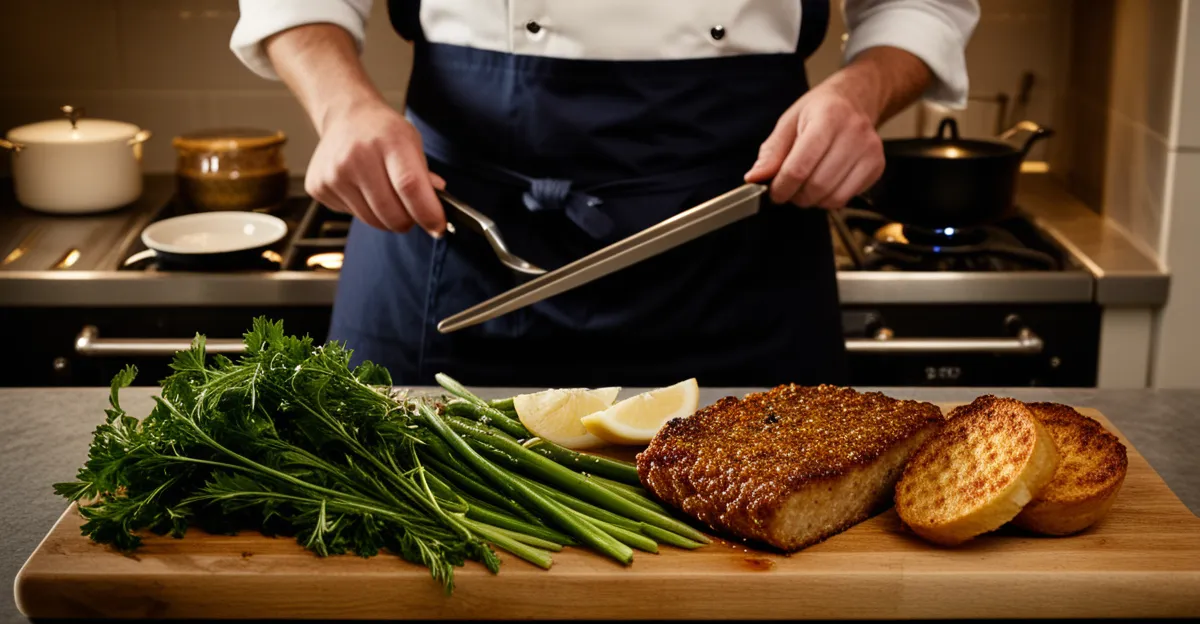The Roots of British Culinary Tradition
Traditional British cuisine is deeply intertwined with the nation’s history, reflecting centuries of agricultural practice, trade, and social structure. Key characteristics include hearty, straightforward dishes that emphasize locally available ingredients such as root vegetables, meats like beef and lamb, and dairy products. Historically, British food history shows a reliance on methods such as roasting, boiling, and baking, shaped by the country’s climate and rural lifestyle.
Classic British dishes like roast beef with Yorkshire pudding, fish and chips, and shepherd’s pie each have distinct origins tied to specific regions. For example, fish and chips emerged in the 19th century, combining fried fish from southern England with chips popular in the North. These dishes initially featured simple, fresh ingredients reflecting what was accessible to the working class.
This might interest you : What are the essential spices for authentic UK curry dishes?
Social and regional factors played a vital role in shaping early British food customs. Regional variations arose from differences in agriculture and trade routes, while social class influenced the availability of certain ingredients. Hence, traditional British cuisine encompasses both the rustic and the refined, offering insight into the nation’s evolving culinary identity.
Evolution of Classic Dishes in Contemporary UK Cooking
Traditional British cuisine has undergone significant transformation as modern British cooking embraces creativity while respecting heritage. Many classic British dishes have been adapted or reinvented by chefs who maintain the essence of British food history but incorporate new techniques and ingredients.
Also to see : How Does Traditional British Cuisine Reflect Its Rich Cultural Heritage?
For example, the iconic shepherd’s pie now frequently includes alternative fillings such as quinoa or lentils to cater to vegetarian diets, illustrating the evolution of British recipes. Similarly, fish and chips have been reimagined with different types of fish or innovative batters, balancing tradition with fresh ideas.
Modern chefs often introduce components like exotic spices, artisan cheeses, and seasonal produce to breathe new life into time-honoured recipes. This adaptation of British classics reflects a broader trend of experimentation combined with respect for classic British dishes.
The fusion of old and new is evident in popular UK restaurants and home kitchens alike, where tradition meets contemporary tastes. This ongoing evolution not only preserves the culinary heritage but also encourages innovation, ensuring British cuisine remains vibrant and relevant amid changing food trends.
Influence of Cultural and Societal Trends
British food culture today reflects a dynamic interplay of multicultural influences on cuisine and evolving societal preferences. Immigration has introduced diverse flavors and cooking techniques, enriching traditional British fare and expanding its flavor profile. This fusion has transformed many classic British dishes, incorporating spices, herbs, and ingredients previously uncommon in British kitchens.
In the UK, dietary habits are shifting due to health awareness and ethical considerations. Increased demand for plant-based meals, organic produce, and sustainable choices has influenced how traditional dishes are prepared and consumed. For example, adaptations of meat-heavy recipes now often feature vegetarian alternatives without losing the core identity of the dish, demonstrating the societal food trends UK.
Moreover, there is a renewed interest in regional specialties as diners seek authenticity and local provenance. This resurgence encourages the preservation of British food history by spotlighting indigenous ingredients and cooking methods. Consequently, British food culture balances honoring past culinary traditions with embracing a diverse, contemporary palate influenced by global trends.
Modern Chefs and the Reinvention of British Cuisine
Modern British food trends are shaped decisively by British chefs who blend respect for tradition with bold innovation. These culinary leaders champion British food heritage by revisiting classic recipes through contemporary lenses, creating dishes that honour history yet delight modern palates. Their approach often involves elevating traditional British cuisine while infusing fresh elements and techniques.
Sustainability is central to this reinvention. Farm-to-table initiatives promote local sourcing, supporting British agriculture and reducing environmental impact. Chefs prioritize seasonal ingredients and regenerate classic recipes to align with eco-conscious values, further connecting diners with British food history through ethically mindful practices.
Fusion cuisine plays a crucial role. By experimenting with international flavors alongside classic British techniques, chefs introduce unexpected dimensions to familiar plates. This cross-cultural experimentation transforms classic British dishes, making them more dynamic and relevant in a globally influenced food scene.
In sum, the reinvention led by modern British chefs balances heritage with progress, ensuring that British culinary tradition evolves while maintaining its core authenticity. This synergy defines the exciting future of British cuisine today.
Expert Insights: Balancing Tradition and Innovation
Culinary experts on British food consistently highlight the delicate balance between preserving traditional British cuisine and embracing innovation. Maintaining authenticity involves respecting British food history—retaining core ingredients, techniques, and flavors that define classic British dishes—while also adapting to contemporary tastes and dietary needs.
How do experts recommend modernising traditional British food? They suggest integrating seasonal and locally sourced ingredients to enhance freshness and sustainability without compromising heritage. Introducing novel cooking methods or global spices can revitalize dishes like roast beef or shepherd’s pie, provided the essence of the original recipe remains clear.
Experts also emphasize education and storytelling, encouraging chefs and home cooks to understand a dish’s origins before innovating. This approach ensures the cultural significance of British recipes endures through change.
Regarding the future of British gastronomy analysis, experts predict continued fusion between tradition and modernity. British cuisine will evolve within a global context, blending influences and technology while valuing provenance and authenticity. This thoughtful evolution ensures British gastronomy remains both relevant and respectful, securing its place in the global culinary landscape.



